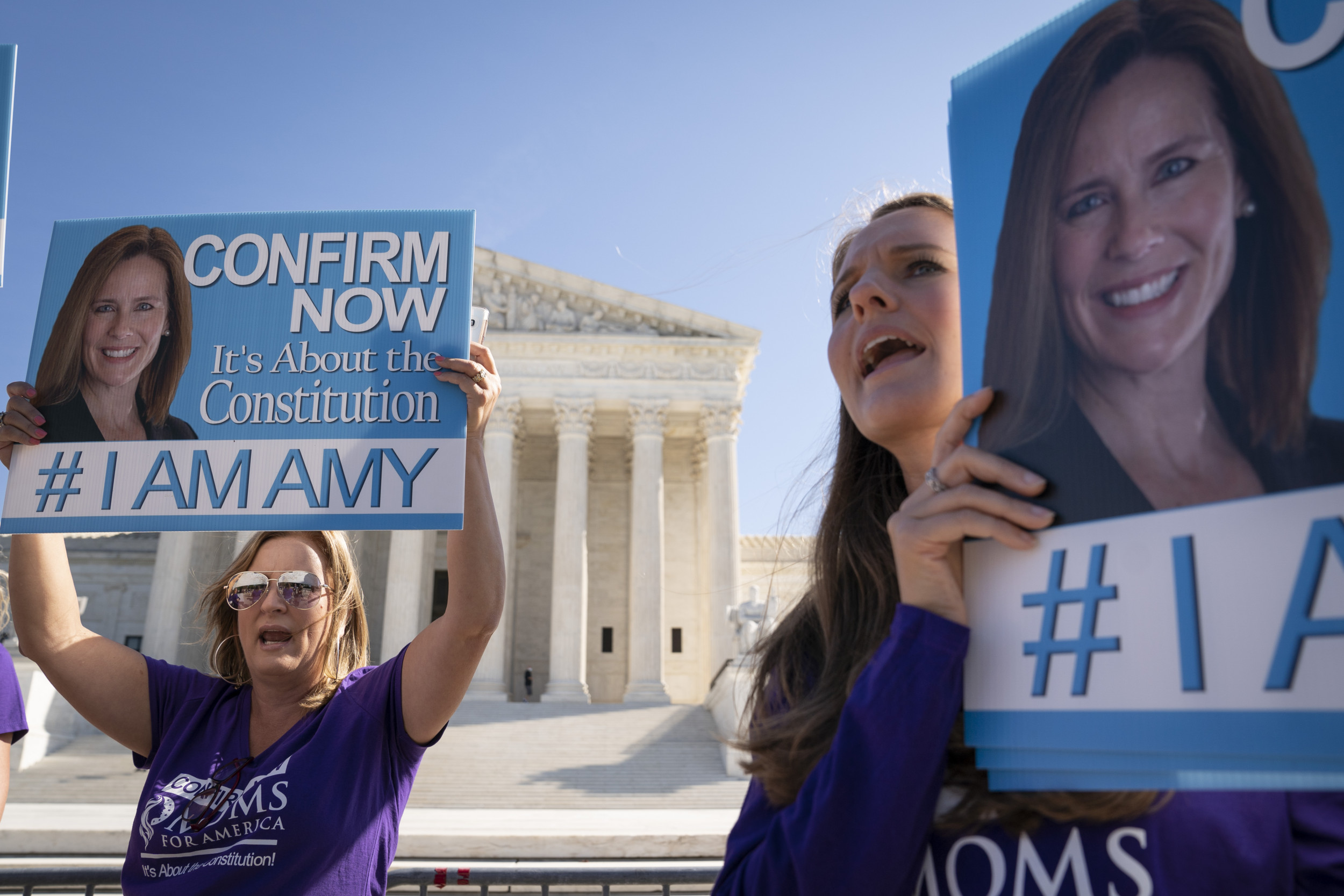Support among Democratic voters for Amy Coney Barrett’s confirmation to the Supreme Court has gone up nearly 20 percent since the day President Donald Trump announced her nomination, a new poll found.
The Morning Consult/Politico poll has measured voters’ support for Barrett four times since September 26, when Trump officially nominated her to replace the late Justice Ruth Bader Ginsburg. Thirty-two percent of Democratic voters in the most recent poll said they support Barrett’s confirmation, an 18 percent increase since polling began.
The latest poll was conducted October 16 through 18, with 1,994 registered voters from both the Democratic and Republican parties. The majority of them (51 percent) said the Senate should vote to confirm Barrett to the Supreme Court. This is a big increase from the 37 percent who backed her confirmation on September 26.
When the results are broken down by party, more Democrats still oppose Barrett’s confirmation, but there was a sharp decrease over time. The September 26 poll found that 59 percent of Democratic voters said they opposed Barrett and that only 14 percent said they supported her.
These numbers have changed in the most recent poll, to 48 percent and 32 percent, respectively, with an 18-point increase among Democrats who back her confirmation.
Support for Barrett among Republicans has remained relatively the same since last month’s poll, with nearly 80 percent of GOP voters backing her confirmation to the court. Among independent voters, 44 percent say they support Barrett’s confirmation, compared with the 28 percent who said the same in September.
The latest poll was conducted in the days following Barrett’s confirmation hearings held by the Senate Judiciary Committee, where senators asked questions focusing on the judge’s knowledge and stances on key issues.
Barrett remained frustratingly tight-lipped on several of them, declining to say whether the Trump administration’s policy of separating immigrant children from their parents at the southern border was wrong, whether Trump could delay the election or pardon himself, or even whether climate change is real, The New York Times reported.
She also declined to say whether several landmark Supreme Court rulings, including those on abortion and gay rights, could be reconsidered, according to the Times. But Barrett showed a strong grasp of the law and spoke to the committee for hours without using notes.
Barrett mentioned a memory of crying with her Black daughter after they learned of the May 25 death of George Floyd in Minneapolis police custody, the Times reported, an anecdote that allowed Americans to see a different side of the judge. Barrett also agreed that Brown v. Board of Education, the court’s 1954 ruling against segregation in public schools, was correct.
A primary focus for Democratic senators during Barrett’s hearings was health care, as the Supreme Court is scheduled to hear a case involving President Barack Obama’s Affordable Care Act one week after the November 3 election.
Democrats argued that Barrett’s writings and appointment as a conservative jurist indicate that she would vote to dismantle the law, according to NPR. But Barrett repeatedly said she had no such agenda. “I’m not here on a mission to destroy the Affordable Care Act,” she said.
A third of voters (34 percent) polled in the latest Morning Consult/Politico survey said they’d seen, read or heard “a lot” about Barrett’s confirmation hearings—much less than the 58 percent who said they’d heard a lot about Ginsburg’s death on September 18.
Perhaps the chance to hear Barrett, who is a staunch constitutional originalist, explain how she approaches the law changed some Democratic voters’ minds about the judge’s controversial nomination. Her personal views aside, many left-leaning politicians and others have criticized Barrett’s nomination for coming too close to a presidential election.
Regardless, the poll found that only 32 percent of all voters believed Barrett’s confirmation would push the Supreme Court in the right direction, while 25 percent said it would push the court in the wrong direction.
The full Senate will vote on Barrett’s confirmation on October 26, Senate Majority Leader Mitch McConnell announced Tuesday. Given that the Senate is controlled by Republicans, her confirmation is expected to pass.
